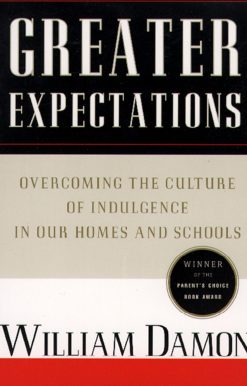Nature, Culture, and Inequality: A Comparative and Historical Perspective
19.00 JOD
Description
“The most important economics book of the year―and maybe of the decade.” —Paul Krugman, New York Times, on Capital in the Twenty-First Century A bestselling economist’s history of inequality and guide to a more just, sustainable world, distilled into an engaging and accessible pocket-sized text.In this unique work, Thomas Piketty presents a synthesis of his historical and comparative research on inequality. He challenges the idea that there could be natural inequalities and shows that the march toward equality has always depended on political and social struggles, addressing diverse topics such as: education, inheritance, the climate crisis, the taxation of wealth, and gender disparities. Adapted from Piketty’s 2022 lecture at the Musée du Quai Branly – Jacques Chirac, Nature, Culture, and Inequality makes his important argument available to a wider audience for the first time. With a clear, conversational tone, he provides a strong foundation of data and concrete examples of how we can continue to level the playing field.
Additional information
| Weight | 3.7 kg |
|---|---|
| Dimensions | 0.72 × 12.7 × 19.5 cm |
| PubliCanadation City/Country | USA |
| by | |
| Format | Hardback |
| Language | |
| Pages | 96 |
| Publisher | |
| Year Published | 2024-9-3 |
| Imprint | |
| ISBN 10 | 1635424569 |
| About The Author | Thomas Piketty is a professor at the École des Hautes Études en Sciences Sociales (EHESS) and the Paris School of Economics, and codirector of the World Inequality Lab. He is the author of the landmark New York Times bestseller Capital in the Twenty-First Century (2014), as well as Capital and Ideology (2020) and A Brief History of Equality (2022).Willard Wood grew up in France and has translated more than thirty works of fiction and nonfiction from the French. He has won the Lewis Galantière Award for Literary Translation and received a National Endowment for the Arts Fellowship in Translation. His recent translations include Camille de Toledo’s Theseus, His New Life (Other Press 2023) and Patrick Boucheron’s Trace and Aura (Other Press 2022). He lives in Norfolk, Connecticut. |
“A readable introduction to Piketty’s worldview.” —Kirkus Reviews“Through his seminal works, Piketty has become a beacon for those seeking to comprehend and combat economic inequity. He’s not just an economist, he’s also a visionary whose ideas inspire a new generation to debate and shape a (much) more equitable future.” —Rutger Bregman, author of Humankind and Utopia For Realists“In a hundred engaging and easy-to-read pages, Thomas Piketty paints a vivid portrait of economic inequality’s many faces—as it relates to income, wealth, gender, education, taxation, inheritance, debt, and climate change. Throughout, Piketty documents the collective choices that have charted inequality’s past path in order to challenge democratic politics to build a more equal future. If you have one hour to devote to thinking about economic inequality today, spend it with this book.” —Daniel Markovits, author of The Meritocracy Trap“Nature, Culture, and Inequality is a clear, incisive examination of one of the world’s major economic problems—extreme income and wealth inequality. In this short, readable volume, Thomas Piketty explains how extreme inequality hurts millions of people worldwide and why some nations have far worse inequality than others. Piketty also makes the case that the high levels of inequality in countries like the United States are not part of the natural order and can—and should—be greatly reduced to create fairer economies for all.” —Steven Greenhouse, author of Beaten Down, Worked Up: The Past, Present, and Future of American Labor“This brilliant little book distills years of world-class research on inequality into a punchy argument with wonderful insights on every page. For anyone interested in the problem of inequality and how to solve it, this is the perfect place to start.” —Jason Hickel, author of The Divide and Less Is MorePraise for Capital in the Twenty-First Century:“The magnum opus of the French economist…will be the most important economics book of the year—and maybe of the decade.” —Paul Krugman, New York Times“Monumental…one of the most thorough and illuminating studies of capitalist economics since Karl Marx published the original Capital 150 years earlier.” —Washington Post“Piketty has written a book that nobody interested in a defining issue of our era can afford to ignore.” —The New Yorker |
|
| Excerpt From Book | ARE THERE NATURALLY OCCURRING INEQUALITIES? THE LONG MARCH TOWARD EQUALITY Inegalitarian systems—that is, the structure and degree of socioeconomic inequality in different societies, and their evolution over time—are extraordinarily diverse. We can make sense of the phenomenon only if we take into account the central role of history and human culture. Inequality has, in fact, followed markedly different trajectories—political, socioeconomic, cultural, civilizational, and religious. It is culture in the broadest sense—and, more particularly, collective political mobilization—that provides an explanation for the diversity, degree, and structure of the social inequalities we observe. In contrast, the importance of so-called natural factors (personal talents, reserves of natural resources, and other factors of this kind) is relatively limited. Sweden, considered one of the most egalitarian countries in the world, provides an instructive example here. Some have attributed its egalitarianism to the country’s ingrained characteristics, to a culture that has a “natural taste” for equality. In fact, Sweden was long one of the most stratified countries in Europe, highly sophisticated in the political organization of its inequality. This situation changed very rapidly in the second third of the twentieth century, in response to a concerted social and political effort, after the Social Democratic Party came to power in the early 1930s. This party, which then governed continuously for the next half century, put Sweden’s governmental capacities toward an entirely different political program than had existed before. Sweden thus provides an interesting case, one that should inoculate us against any belief in long-term determinism, according to which certain natural or even cultural factors might make some societies forever egalitarian while making others (India, for example) forever inegalitarian. Social and political forms can change, sometimes much more quickly than contemporary observers think. Those who benefit most from a system tend, for obvious reasons, to see inequalities as part of the natural order, and they are apt to characterize disparities as permanent and inevitable, warning against any change that might threaten the existing harmony. In fact, reality is highly changeable and always being rebuilt: it is the product of power relations, institutional compromises, and partially explored forks in the road. But looking beyond this great diversity of inegalitarian systems, we can recognize a basic movement over the course of the past centuries: a tendency toward greater social equality. This trend started at a particular point in history and not, for instance, in Neolithic times or in the Middle Ages. It is part of the historical development that had its origins in 1789—call it the end of the eighteenth century—and it has led toward increasing political and socioeconomic equality. Limited in extent, this gradual movement toward equality has been a halting, chaotic process in which social conflict has played an extremely important role. And it has called for various forms of collective learning. In my book Capital and Ideology (2019; English translation 2020), I laid out the theme of collective learning about just institutions, specifically around the question of borders: What are the outlines of the community one belongs to? How are political power and the political system organized within this community? The same goes for property: What are the collective rules that define the limits and extent of property rights? What do you have the right to own? What does it mean to be an owner? These two central questions—borders and property—are thus sources of conflict and directional change, with each country trying to learn from its own trajectory and all too often forgetting the trajectories of other countries. Each country follows its apprenticeship trajectory, which in the long term tends toward greater equality, even if the motion is hesitant and punctuated by retrograde phases. Finally, overarching the diversity of inegalitarian systems and the limited trend toward equality, there exists another type of relationship between nature, culture, and inequality that I’d like to examine here and that I’ll address in the last part of this text: global warming, CO2 emissions, and the destruction of nature and biodiversity. This issue will occupy an ever-more-central place in the decades ahead. It may lead to a greater demand for equality than we’ve recently seen: there can be no resolution to the global warming crisis, no possible reconciliation between man and nature, without a drastic reduction in inequality and without a new economic system that is radically different from the current capitalist one. In describing this system, I refer to “a participatory, democratic, and ecological socialism,” but other terms could clearly be devised—and no doubt will be. At all events, I consider it imperative to reopen the discussion on changing the economic system and reimagining its long-term development. |
Only logged in customers who have purchased this product may leave a review.






Reviews
There are no reviews yet.